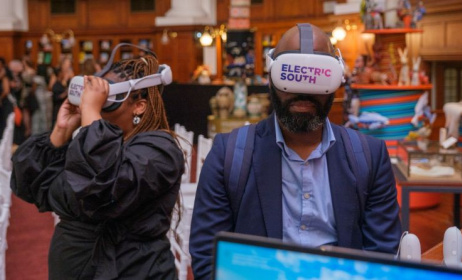ZIMURA’s Henry Makombe: Copyright must become a pillar of Zim’s creative economy
Zimbabwe’s music industry has no shortage of talent, but it faces deep-rooted intellectual property (IP) challenges that continue to erode the earnings of musicians and composers. For Henry Makombe, deputy director of the Zimbabwe Music Rights Association (ZIMURA), the problems range from weak law enforcement to a lack of copyright awareness among artists and the public.
 ZIMURA deputy director Henry Makombe.
ZIMURA deputy director Henry Makombe.
“The most pressing issue is the weak enforcement of copyright laws,” Makombe says. “When infringements occur, penalties are neither severe nor consistent enough to act as a deterrent. This, combined with the absence of standard payment structures for live performances, makes revenue collection extremely difficult for artists.”
Structural gaps and public misconceptions
Makombe points to the near absence of record labels and publishing houses as a major structural deficiency, leaving most artists to operate independently. Without professional support, many works remain unlicensed and poorly monetised.
Public understanding of copyright is another hurdle. “Music is still seen by many as a free public commodity,” he says. “This fuels piracy and unauthorised uploads to digital platforms. It makes it harder for artists to benefit from their creations.”
The knowledge gap extends to creators themselves, with many lacking a grasp of rights such as mechanical, synchronisation, or public performance. This leads to missed revenue opportunities and, in some cases, complete loss of control over their works.
Funding remains scarce, with artists unable to afford legal advice, publishing services, or marketing. Policy neglect also plays a role. “Copyright is not seen as an economic driver,” Makombe notes, “so there’s little budgetary support or policy development.”
Ensuring fair royalties
Despite these challenges, ZIMURA says it has made strides in ensuring royalties are distributed fairly and transparently. The organisation uses ACRCloud, a global audio recognition tool, to monitor radio and television broadcasts in real time. It also employs WIPO Connect, a World Intellectual Property Organisation system for IP rights management.
“Our members get detailed statements showing what they’ve earned, where the income came from, and which works generated it,” Makombe explains. “This level of detail is essential for accountability.”
ZIMURA is working to close the copyright knowledge gap through workshops, media campaigns, and outreach on social media. It also collaborates with radio, TV, and print outlets to reach a wider audience.
“A lot of artists still treat music as a social product rather than a commercial asset,” Makombe says. “We’re working to change that mindset.”
Protecting music across borders
To safeguard Zimbabwean music internationally, ZIMURA aligns with global treaties such as the Berne Convention and TRIPS Agreement. Reciprocal agreements with Collective Management Organisations in other countries allow the collection and distribution of royalties from abroad.
With streaming now dominant, ZIMURA licenses digital platforms and has partnered with global distributor RouteNote to help artists release music online. ACRCloud tracks usage across streaming, radio, and television, ensuring royalties are based on verified plays.
Makombe supports amending the Copyright and Neighbouring Rights Act to address piracy, regulate digital rights, and expand protections for new creative formats like NFTs and AI-generated works. He also wants compulsory licensing for all commercial music platforms, backed by strict penalties for non-compliance.
Broadcasters are required to submit detailed logs of music played, which ZIMURA cross-references with ACRCloud’s automated monitoring. For live shows, event organisers submit performance return forms listing songs performed.
Educating and protecting new talent
Makombe stresses that emerging artists need both education and practical tools. ZIMURA provides split sheet templates to help collaborators record ownership shares from the outset, reducing disputes and aiding royalty allocation.
In cases of infringement, ZIMURA offers mediation, legal advice, and, if necessary, litigation support. “We help members understand their rights and guide them through the process of defending those rights.”
Over the next decade, ZIMURA aims to digitise all its operations, allowing members to track royalties and music usage in real time. It plans to expand international agreements, push for regional harmonisation in rights management, and work with government to make copyright central to economic policy.
“Our vision is a future where Zimbabwean music is not only protected locally, but promoted and monetised globally,” Makombe says. “Copyright must become a pillar of Zimbabwe’s creative economy.”































Comments
Log in or register to post comments